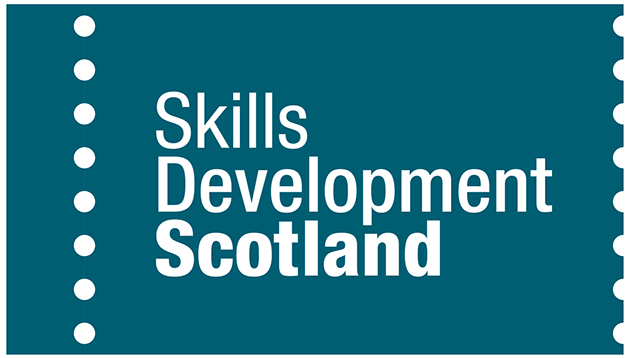An alternative route to degree study
Libby initially joined the IT Software Development (ITSD) Graduate Apprenticeship programme when she was an IT Trainee at a start-up software company who were attracted to Strathclyde's blended learning delivery model.
At Strathclyde, all Graduate Apprenticeship programmes have been designed in the same format. Online learning is supported by on-campus teaching typically just once per month reducing the need for the Apprentices to be out of the business to attend University.
Through innovative online learning materials, designed bespoke for the Graduate Apprenticeship programmes, learners work through interactive activities including short videos, discussion forums, live tutorials and quizzes on a weekly basis. On-campus sessions then allow for the face-to-face delivery of teaching whilst also allowing Graduate Apprentices to interact with their tutors and network with their peers.
This model is also more suited to Libby's personal learning style. She had previously studied Maths on a full-time basis before leaving to pursue a career in software development. Her interest was sparked whilst studying a computer science module.
With her employer keen to upskill staff to degree level, Libby began her studies with the first cohort of the ITSD programme at Strathclyde in September 2018.
However, it was not a straightforward start when her initial employer sadly made her redundant just six months into her degree. At this stage, Libby turned to the ITSD Graduate Apprentice programme team at for guidance. With their support, Libby was put in contact with a new employer and quickly took up a new post.
Now based with Pulsion, a considerably larger organisation, Libby is currently their first Graduate Apprentice although colleagues are completing Modern Apprenticeships with a view to continuing in her footsteps onto the graduate programme in the future.
Flexibility for working around life
When it comes to balancing a busy work life and study, Libby admits that it can be challenging at times however with the support of her employer, a positive attitude and a passion for what she is doing, balancing work and study has been a success.
As the course is spread out across weekly activity, it's manageable. I like that you can do the work when it suits you. If I'm having a quiet week at work, I can study in the evenings but if work is busy and I need evenings to relax I can study at weekends.
After realising that attending long lectures and tutorials on a full-time programme wasn't the best way for her to learn, the flexibility offered by the Graduate Apprenticeship degree has been key for Libby.
With this programme I can watch a short video, pause it when I need to process something, take notes or look a bit deeper into it before carrying on watching. It’s just much more suited to my style of learning.
Practical in the workplace
At Strathclyde, we employ dedicated Work Based Learning Advisors who are a key part of our Faculty teaching teams. These individuals bring a wealth of industry experience as well as a background in work based assessment.
Libby and all Strathclyde Graduate Apprentices are supported throughout their studies by a Work Based Learning Advisor whom they meet regularly to monitor their progress on the programme. They support the development of their e-portfolio of evidence for use should they wish to apply for Professional Accreditation upon completion of their degree studies.
Work based learning is integrated into each Graduate Apprenticeship programme and directly contributes credits towards the award.
There are things I learn at University and that really helps me at work. I can also use what I am doing at work for the work based learning modules so you can apply it and use what you have done as evidence.
A supportive learner environment
In addition to the support provided to learners by the University, Libby highlights how the network of peers on the programme has also been a great benefit.
Having moved to Glasgow from Liverpool, she acknowledges how the programme has also helped her connect to other people in the industry as well as making friends across her cohort.
Libby also credits the programme team for the monthly feedback sessions they host with students when on campus that have seen adjustments made to the programme in its initial year to make the balance of work and study right.
These continuous improvements have assured learners their voices are heard and make these work based degrees work for them and their employers.
Designed in partnership with industry
The strong tripartite relationship between an employer, the learner and the University is the key to the success of work based Graduate Apprenticeship degrees. Strathclyde is committed to delivering a high-quality experience for all employer partners as well as learners.
Through engagement events and discussions, employers have shaped the Apprenticeship degrees we deliver at Strathclyde. This has resulted in programmes which do not only bring value and opportunity to the learner, but also to our employer partners.
Developing essential skills for the future
Graduate Apprenticeships are an opportunity for organisations to not only broaden the talent pool by recruiting new staff into their business but also to develop existing employees. Employers can nominate individuals who are in a suitable job role, which will enable them to complete the work based learning elements of the programme.
The Graduate Apprenticeship just puts me in a much better place than I would have been on a traditional programme. I have the opportunity to gain my degree and apply it back to my work experience so after four years I am going to be further ahead.

